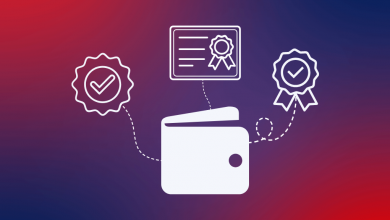Migrate Quickbooks to Azure
Migrating QuickBooks to Azure, Microsoft’s cloud computing platform, can offer numerous benefits.
 QuickBooks is a popular accounting software used by many businesses to manage their financial operations.
QuickBooks is a popular accounting software used by many businesses to manage their financial operations.
As companies increasingly move their IT infrastructure to the cloud, migrating QuickBooks to Azure, Microsoft’s cloud computing platform, can offer numerous benefits.
 In this webinar Will Ominsky of Nerdio shares a primer on the process and best practices, and how you can complete the migration in only an afternoon.
In this webinar Will Ominsky of Nerdio shares a primer on the process and best practices, and how you can complete the migration in only an afternoon.
Migration Process
Migrating QuickBooks to Azure involves several steps. Follow the steps below to successfully migrate your QuickBooks data to Azure:
- Assess your current QuickBooks setup and determine the data that needs to be migrated. This includes company files, customer information, vendor details, and other relevant data.
- Create an Azure account and set up the necessary resources. This includes creating a virtual machine (VM) to host QuickBooks and configuring storage options.
- Install QuickBooks on the Azure VM. Ensure that you have the necessary installation files and license information.
- Transfer your QuickBooks company files to the Azure VM. This can be done using various methods such as copying the files over the network or using a file transfer protocol (FTP) client.
- Configure network settings to ensure secure access to QuickBooks on Azure. This may involve setting up a virtual private network (VPN) or using Azure’s built-in security features.
- Test the migrated QuickBooks setup on Azure to ensure everything is functioning correctly. Verify that you can access and use QuickBooks without any issues.
Once you have confirmed the successful migration and testing, update your DNS records or configure a domain name to point to the Azure VM hosting QuickBooks. This will allow users to access QuickBooks using a familiar domain name.
Benefits of Migrating QuickBooks to Azure
Migrating QuickBooks to Azure offers several advantages for businesses:
- Scalability: Azure allows you to easily scale your QuickBooks environment based on your needs. You can quickly add or remove resources as your business grows or experiences fluctuations in demand.
- Cost Savings: By migrating QuickBooks to Azure, you can eliminate the need for on-premises infrastructure and associated maintenance costs. Azure offers flexible pricing options, allowing you to pay only for the resources you use.
- Reliability and Availability: Azure provides high availability and redundancy, ensuring that your QuickBooks data is protected and accessible even in the event of hardware failures or disasters.
- Security: Azure offers robust security features, including encryption, access controls, and threat detection. By migrating QuickBooks to Azure, you can enhance the security of your financial data.
- Collaboration and Remote Access: With QuickBooks on Azure, you can enable remote access to your financial data, allowing employees to work from anywhere and collaborate effectively.
- Integration with Other Azure Services: Azure provides a wide range of services that can be integrated with QuickBooks, such as Azure Active Directory for user management and Azure Backup for data protection.
By following the migration process outlined above and leveraging the benefits of Azure, you can seamlessly migrate QuickBooks to the cloud and unlock the full potential of your accounting software.



